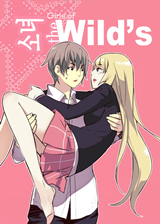I originally read this as it was released, and I got more and more invested as it carried on. I can't remember all the specifics, but essentially all the groundwork the series had done was betrayed and several characters instantly acted out of character for reasons that didn't add up, leading to such a disconnect in what I was reading that I lost my suspension of disbelief and never got further than a handful of chapters after what I will call the twist.
The main character reverted and lost so much character progress it felt like a soft reset. One of the girls who genuinely cared for the main character after what the titular female lead did to him, suddenly had her feelings changed.
It just didn't make any sense. This was Air Gear levels of bad writing. The problem wasn't the drama, the problem was how artificial the drama was (forced by the author's hand, with little to no grounding in the rest of the story). I suspect the people who liked this twist would also watch daytime soap operas (a medium with such terrible writing I could not finish the one I tried to watch just to try and guess what people liked about it).
For the first while, this series was a 9. But that twist broke the story so badly it literally tanked the series for me, and all goodwill that was built up. I genuinely felt like my time was wasted and wished I never would have discovered it. The author should be shamed and ashamed for that decision, and the editors should be, too.
That's not my opinion of being emotional, that's my opinion as a writer. You don't force twists if the story isn't ready for them. You don't make decisions that impactful in your story without making sure it makes sense, and that the reasons also have logical reasons for being reasons for the twist.
The author of Fuuka did a twist that broke me and many other readers. I couldn't keep reading after it happened and showed it wanted to keep going despite what happened. But I never once called it bad writing, because what happened can and does happen, and as tragic and disruptive as it was, it at least made sense. The world is unfair but life goes on, and I respect the work for it. Furthermore, when it got made into an anime, the author decided not to have the twist and changed the story almost entirely. When asked in an interview why he did it, there were two reasons:
-
The author felt genuinely bad for what he did to his readers. Once he learned how many readers fell into real depression from reading the manga, he didn't like the fact he gave people that kind of pain.
-
It hit the manga's bottom line hard. Not enough to get it canceled (it's audience was that big), but certainly enough to make him realize that what he did hurt his income.
His twist hurt the readers, and his finances and the series as a whole never recovered its popularity, but no one could rightfully contest the quality of the writing.
This manhwa can't say the same. The twist happened and instead of feeling broken, I felt confusion and then disappointment, and then anger—not because the story hurt me but made sense, but because the story stopped making sense in order to hurt me.
I can't say for sure why the author did what they did, but I suspect it to be one of two things: they didn't recognize the story had found a very natural conclusion and only needed a decent epilogue; they had a lot of pride which blinded them to the folly of cutting off the roots of the story and expecting the tree to still live.
Theoretically, you would think I should give this story a 4-6, since it was a 9 for so long and I got to enjoy it as such. But I won't, because the things I wanted to see resolved never did get resolved in a legitimate way, and thus it became an eternal cliffhanger with no real answers to any of the questions. And worse, it assassinated the characterization of characters I liked so much. It succeeded in turning the love I had into hate towards what it had become.
I won't give it a 1, and the art gets the plus 1 I give for great art, so I guess that means it's a 3.





